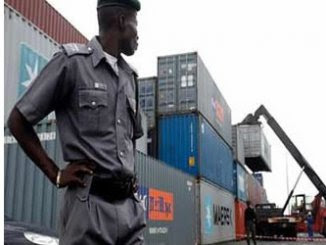
The external reserves of Nigeria which plunged to $38.912 billion have increased by 11 per cent hitting N43.195 billion as at December 2018.
This represented an increase by $4.3 billion within the period. The reserves had dropped to about $41 billion in November last year.
Save for a total of $5.36 billion Eurobond issued by the federal government last year, which bolstered the country’s reserves position, it would have depreciated significantly considering the combined effects of interest rate normalisation in some advanced economies which has resulted to increased capital outflows as well as the slump in crude oil price.
After successfully raising $2.5 billion from the Eurobond market last February, the federal government in November last year raised $2.86 billion to fund its 2018 budget deficit.
At $54 a barrel, international benchmark Brent crude was down at about 20 per cent in 2018.
The decline was the first annual loss and the biggest yearly drop since 2015, when both contracts fell more than 30 per cent.
Crude oil prices look likely to trade below $70 per barrel in 2019 as surplus production, much of it from the United States, and slowing economic growth to undermine OPEC-led efforts to shore up the market, a Reuters poll had shown.
CBN Governor, Mr. Godwin Emefiele, recently pointed out that due to the ongoing interest rate normalisation in the United States, which has been predicted to extend to some other advanced economies in Europe, the central bank would focus on maintaining a stable exchange rate so that businesses can plan and to avoid a problem in the banking system assets.
“The choice for Nigeria is to maintain a stable exchange rate so that businesses can plan and we don’t create problem in the banking system assets,” he had explained.
According to him, practically, all emerging markets have suffered, not just by depreciation, but also loss of reserves since the interest rates normalisation commenced.
He also warned speculators in the forex market that they would lose their shirt, saying the central bank has enough war chest to sustain the stability in the forex market.
According to him, the central bank would continue to take measures to ensure stability in the forex market.
The President of the Association of Bureaux De Change Operators of Nigeria (ABCON), Aminu Gwadabe, had on Monday said the strategic partnership between the central bank and ABCON has continued to ensure a stable exchange rate in the country.
“This sustained stability made the Bureaux De Change (BDCs) to continue to be the potent monetary policy tool of CBN exchange rate managements,” he said.
According to the ABCON boss, the market distortion by forex speculators, rent seekers, currency hoarders and frivolous demand that usually endangered naira stability have been successfully checkmated.
The buying/selling rates for dollar stood at N358/359.5; Pounds Sterling, N452/ N457 and Euro N404/N409.5 on Monday respectively.
In Port Harcourt, dollar buying/selling rates at the close of the year were at N359/361; Pounds Sterling, N457/N464 and Euro N405/N408 respectively.
In Abuja, dollar buying/selling rates closed last year at N359/360; Pounds Sterling, N464/N467 and Euro N407/ N410 respectively. In Kano, dollar buying/selling rates for last year were at N359/360; Pounds Sterling, N465/N472and Euro N407/N411 respectively.













